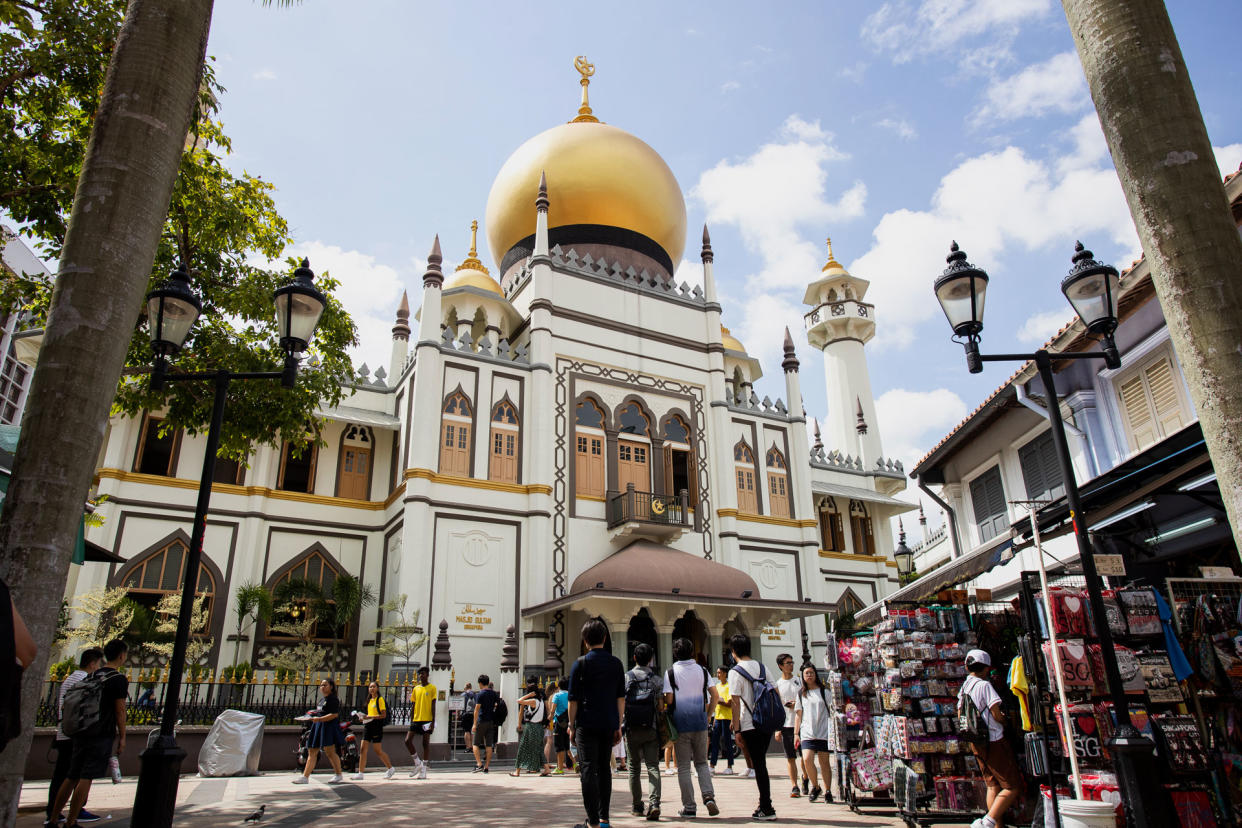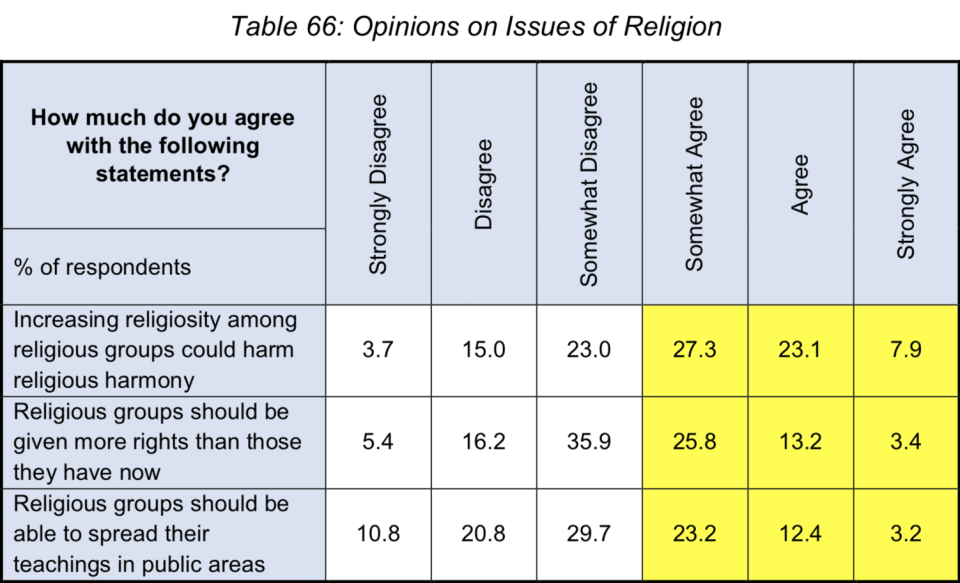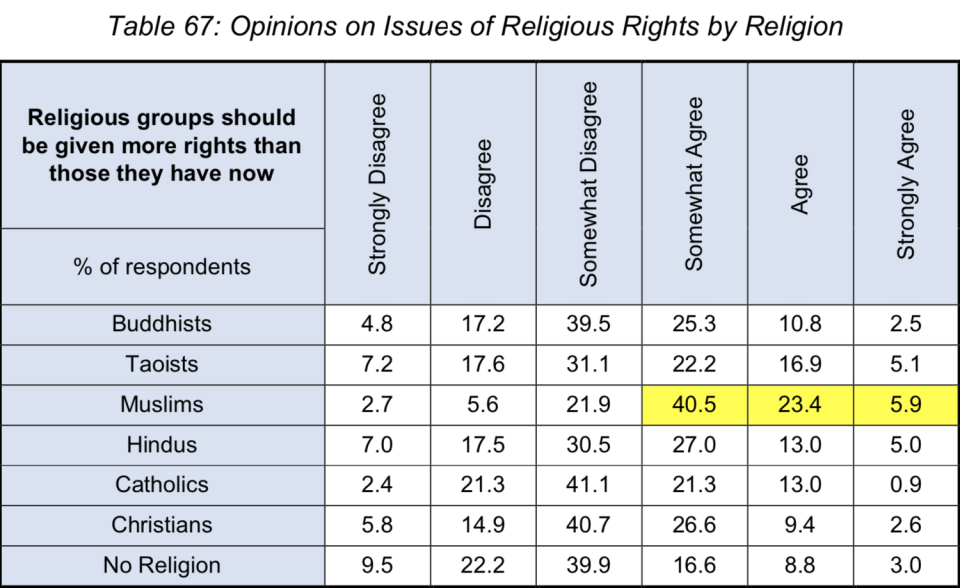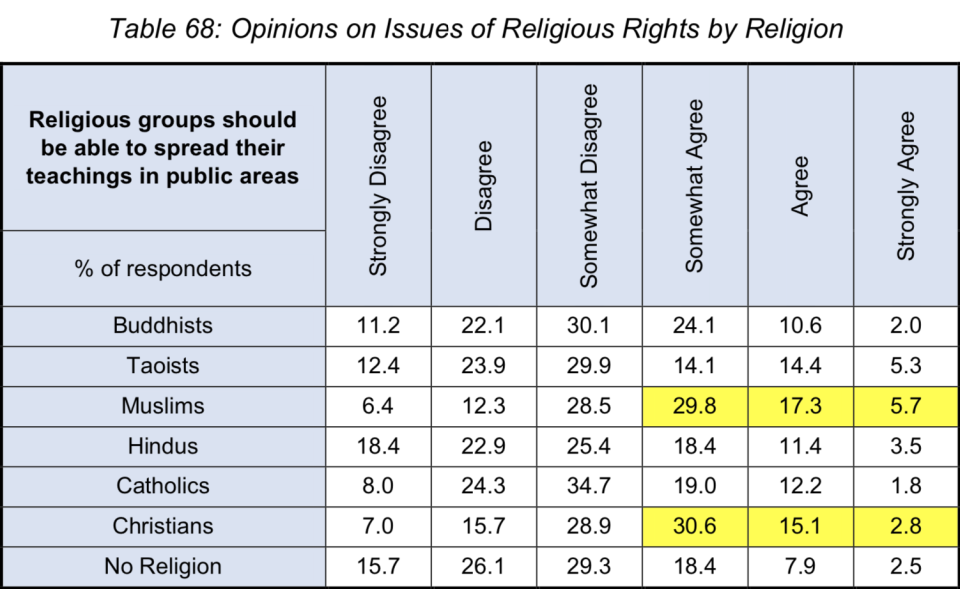About half of Muslims and Christians feel religious groups should be able to spread faith in public: poll

SINGAPORE — About half of Muslims and Christians in Singapore said that religious groups should be able to spread their teachings in public areas.
While 52.8 per cent of Muslims and 48.5 per cent of Christians have the opinion, 61.3 per cent of overall respondents disagreed with it, according to a survey published in an Institute of Policy Studies (IPS) working paper.
In addition, 57.5 per cent of overall respondents disagreed that religious groups should be given more rights while 58.3 per cent of them said increasing religiosity among religious groups could harm religious harmony.
“These results allude to potential future disagreements between religious segments on the boundaries of religious freedom and expression in Singapore,” said the IPS working paper released on Tuesday (29 October).
The survey by the IPS was conducted between August last year and January this year and involved 4,015 respondents who are Singapore citizens and permanent residents. Part of the findings - involving race, religion and language - were earlier released in July.
The participants’ in-depth responses to five key fault lines - race, religion, immigration, class and LGBT (lesbian, gay, bisexual and transgender) issues - were released in the working paper titled ‘Faultlines in Singapore: Public Opinion on their Realties, Management and Consequences.’
On the question whether religious groups should be able to spread their teachings in public areas, the corresponding figure is less than 37 per cent each for Buddhists, Taoists, Hindus, Catholics and those with no religion.



Ongoing endeavour to maintain religious peace
The majority of Muslim respondents - 69.8 per cent - indicated that religious groups should be given more rights than those they have now.
In contrast, the corresponding figure for Hindus who said so was 45 per cent; for Taoists, 44.2 per cent; for Buddhists, 38.6 per cent; for Christians, also 38.6 per cent; and for Catholics, 35.2 per cent.
The overwhelming majority of respondents (91 per cent) agreed that the government is responsible for racial and religious harmony in Singapore. About 93 per cent also agreed that the government should help all religious and racial groups preserve and maintain their traditions and customs.
On the government’s performance in this area, about 90 per cent felt that it has maintained a fair system for everyone, regardless of race or religion.
The IPS paper said, “At the community level, it has been observed that while the majority of the population expressed agreement to varying degrees that Singapore is free from religious tension, a significant minority reported being upset due to negative experiences associated with religion.”
The paper also noted that over a fifth of respondents had experience of someone challenging their religious beliefs and practices while over a quarter of them were upset over proselytisation attempts, according to recent findings.
“Instances where specific religious practices (such as burning incense) may give rise to unhappiness and tense inter-religious relations have also been noted. These illustrate the potential of this fault line to widen if mismanaged; and that the maintenance of the religious peace is an ongoing endeavour.”
The IPS working paper can be found online here.
Other Singapore stories:
Majority of Singaporeans want 1 in 5 people or fewer to be immigrants: survey
2 PMD-related fires in Singapore within an hour
Woman, 54, charged with murdering 63-year-old man in Ang Mo Kio flat
Man suspected in Commonwealth Avenue double deaths charged with murder: reports



